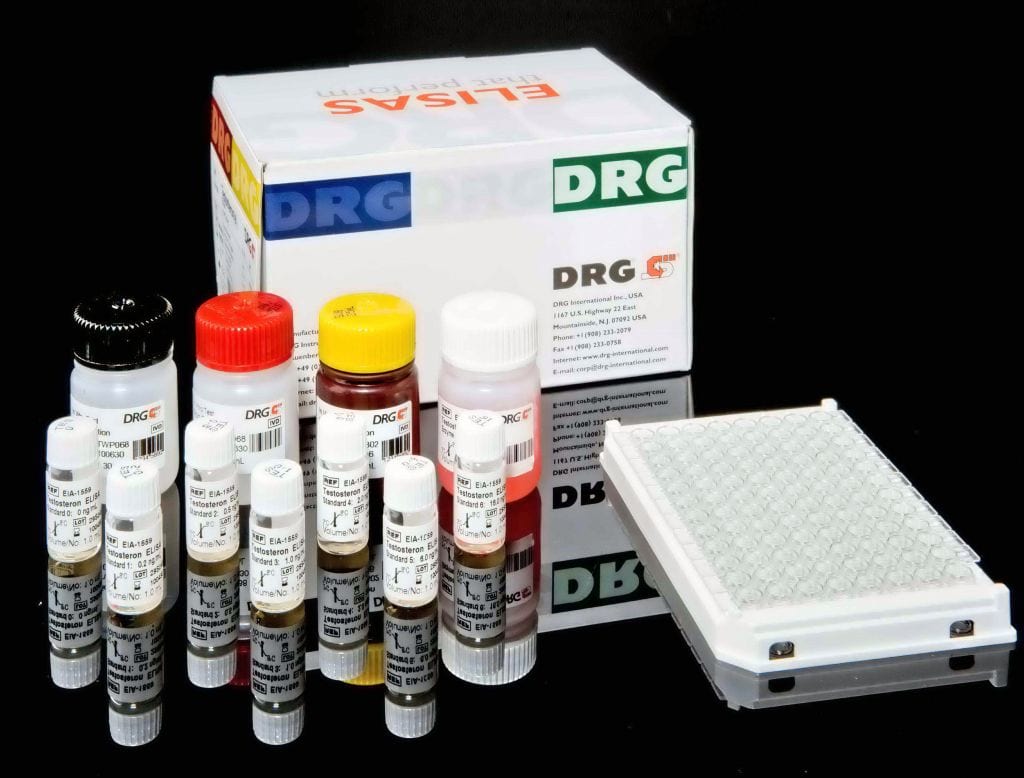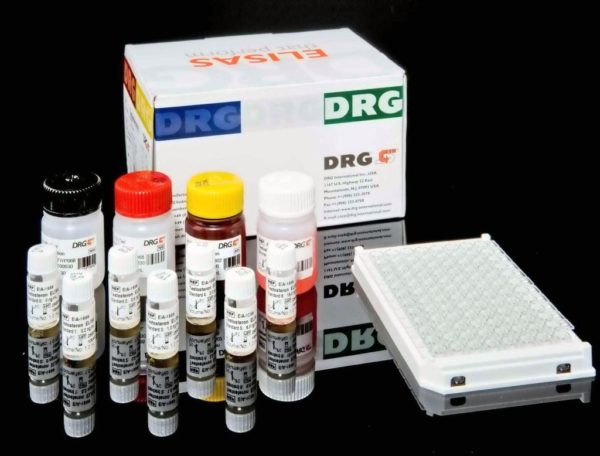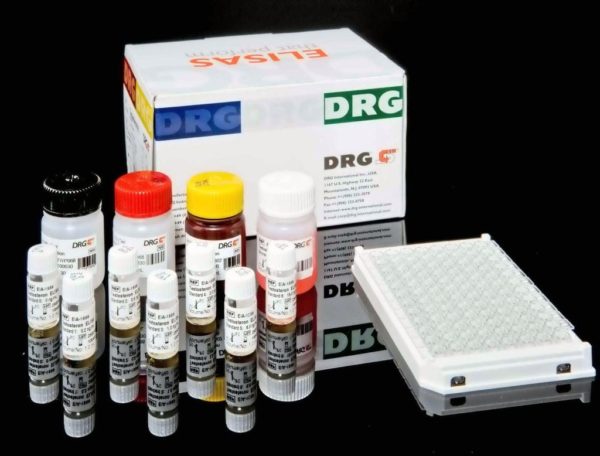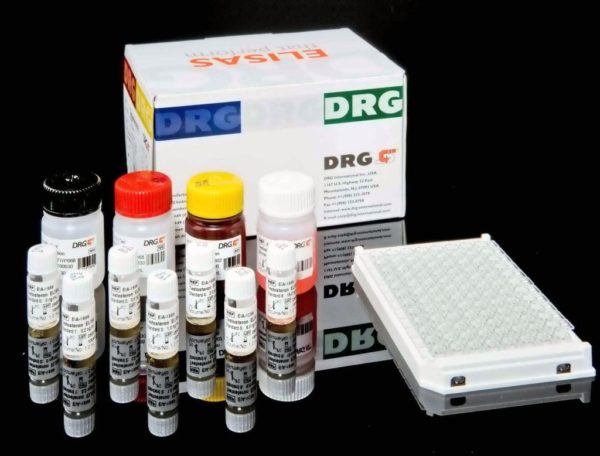Description
CNP belongs to a well characterised group of natriuretic peptides like atrial natriuretic (ANP) and brain natriuretic peptide (BNP), which play various important roles as regulatory mechanisms as well as bio-markers. They participate in the regulation of blood pressure and body fluid homeostasis, modify growth and development of cardiovascular tissues and bone. ANP and BNP are cardiac hormones, secreted by the atria and ventricles, respectively, in the normal adult heart. In contrast to ANP and BNP, very little CNP is produced
by cardiac tissue, but is expressed primarily in the brain, pituitary gland, vascular endothelium, kidney and female reproductive tract. All natriuretic peptides are produced as propeptides, which are subsequently cleaved into the biologically active, C-terminal hormone and a N-terminal fragment (NT-proANP 1-98, NT-proBNP 1-76 and NT-proCNP, which length is still under discussion). Since those N-terminal fragments are much more stable, and circulate in higher amounts than the active hormones, they are easier and more
reliable to be measured in serum or plasma. So we developed a sandwich immunoassay for NT-proCNP using antibodies directed against amino acids 1-19 and 30-50. The physiological role of CNP is not only studied in cardiac disease, but also in bone developmental biology, generally in bone research, renal diseases, embryonic developmental research and vascular disease.
POSSIBLE INDICATIONS
-vascular disease
-growth disorders
-renal insufficiency
-diabetes disorders of the nervous system
-skeletal development




